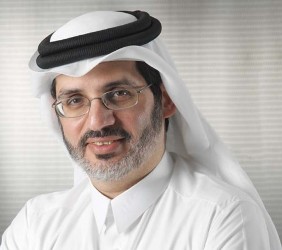Telecom Lead Middle East: GSMA Mobile for Development Foundation (earlier known as GSMA Development Fund) has appointed Nasser Marafih, CEO of Qtel Group, as its chairman.

“The new name more clearly reflects our mission to put relevant, impactful services into the hands of underserved people and is more indicative of the evolving role of mobile as a key tool enabling positive social and economic change,” said Chris Locke, managing director, GSMA Mobile for Development.
“Through its ubiquity, mobile is the predominant infrastructure in emerging markets and the GSMA’s Mobile for Development programme will continue to bring together mobile operators, the wider mobile industry and the development community to drive commercial mobile services for underserved people in emerging markets,” Locke added.
“There is a profound synergy between the aims of the GSMA Foundation and Qtel Group’s vision. We are committed to improving the lives of our customers, and to making a valuable difference in the markets where we operate in Asia, the Middle East and North Africa,” said Qtel Group CEO Nasser Marafih.
Qtel aims at extending the benefits of mobile technology to the underserved communities across its footprint, with programs such as mLearning in Tunisia and mobile money for the unbanked in Indonesia.
The telecom operator also launched pioneering initiatives to increase mobile access for women in Iraq and Indonesia, and have tailored mobile services for people with special needs in Qatar.
“Qtel has demonstrated remarkable support of the Development Fund in the past, with particular leadership in advancing mWomen initiatives in Iraq and Indonesia and has demonstrated their commitment to leveraging their mobile networks to advance the broader good,” said Anne Bouverot, director general, GSMA.
The GSMA Development Fund has partnered with 35 mobile operators across a range of programs, rolling out 53 services and impacting the lives of tens of millions of people across 30 countries.
It has identified opportunities for social, economic and environmental impact and helped to stimulate the development of scalable, life-enhancing mobile services through programmes such as Community Power from Mobile, Green Power for Mobile, Mobile Money for the Unbanked (MMU) and mWomen.
Since the MMU program was founded, the industry has increased five-fold, with over 100 mobile money deployments active in the world today, 80 per cent of which are in developing markets. The Green Power for Mobile programme, through more than 24,000 live and planned base station deployments, will save over 422 million liters of diesel and 1.4 million tons of carbon emissions per year, while connecting 27 million rural inhabitants to the mobile network. The evolution of this programme, Community Power from Mobile, is providing energy access to remote villages, lighting homes and powering key services such as clinics and vaccine fridges.





